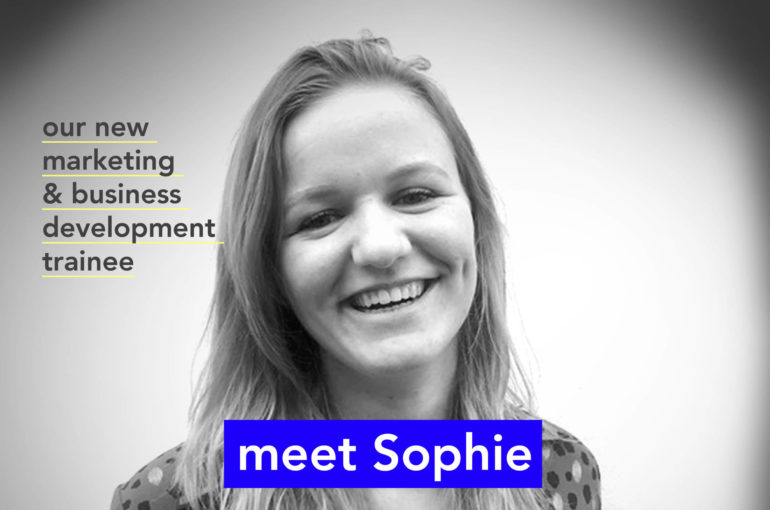Meet Sophie… our marketing & business development trainee

It was just a few days before lock-down started, but that didn’t keep Sophie from making an impactful start. As recent graduate, she knows all about business development and deploying the right marketing strategies. Her focus is on growing impact by growing our impact agency: spreading the word and the right messages towards all businesses that want to make a positive change. Let’s get to know Sophie a bit better, with the burning questions below…
The biggest change that consumers can make to contribute to a sustainable world?
I believe that it’s not just consumers that should contribute to change, but this also doesn’t mean that it’s only up to businesses. I think that for a lot of people, the most important step to make still is being aware of your own impact. When people critically look at their own behavior, they mostly find that their footprint is bigger than they expected, and that they can make significant changes with just a few simple adjustments or behavioral changes. The goal shouldn’t be to live completely sustainable, but to make those positive changes that you can make.
What is your favorite impact brand?
I have multiple favorites haha, – but If I really have to pick just one then Lush is my favorite. I love their package free alternatives for products like shampoo and deodorant, as well as their crazy bath bombs.
Also, I think it’s cool that they take in a clear position and viewpoint, and take responsibility with their posts related to racism, the LGBT community and cruelty. Of course I love the great columns they share about these and other topics!
What sector or brand still has big potential to make a sustainability shift?
I think that there are a lot of sectors (and thus brands) that have a long way to go, but for me the government and electronic products are a thorn in the eye.
Government: Why is there still a higher tax on train tickets than on flights? And why is taking the car still often a cheaper option than travelling by train? I think that they can be more proactive in directing and influencing the behavior of consumers (and companies) to change habits and views. The government can (and has to) stimulate the market to take next level actions.
Electronics: Often when a product malfunctions or breaks, you have little options besides bringing it to the garbage dump. Repair often is crazy expensive or not even possible: because every brand has its own specific components. Why isn’t the focus more on circularity? When one part of my laptop breaks, I want to extend its lifetime by just repairing it and giving it another go! I don’t want a whole new laptop.
Finally, any sustainable habits, lifehacks or suggestions that you developed during the lockdown period?
Since I didn’t have to travel to university & my internship (in Leiden and Amsterdam), I had a lot of extra time. This gave me the chance to develop new hobbies and changing some of my quite ingrained habits!
To entertain myself I started sewing. Instead of throwing away a dress that didn’t fit me, I made a skirt out of it. This really was an eye-opener; it wasn’t that hard (and granny like), and I really enjoyed (re)making pieces myself. Now, when I have an old shirt or a piece of fabric, I try to make something out of it. For example, a shopping bag or, at the moment, face masks.
I read a lot about ‘The Zero Waste Project’, which resulted in several new habits. My favorites still are reusable cotton pads, silicon food covers and plastic free veggie shopping at the Turkish supermarket!
This piece was written by Margreet van Schaijck.